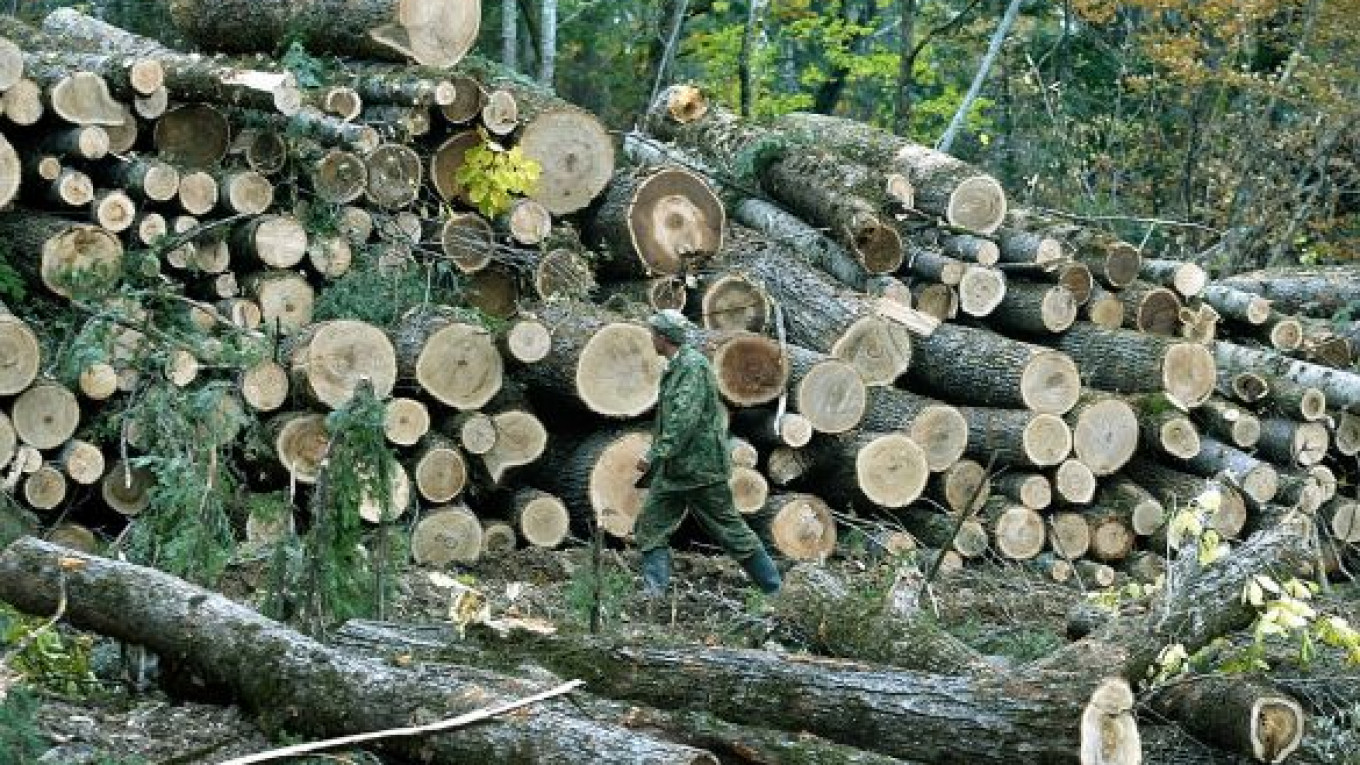Finnish paper mills will get a rare boost from lower costs once Russia enters the World Trade Organization and cuts its export duties on raw wood, the Finnish business lobby said.
The Finnish paper industry, led by forest groups like Stora Enso, UPM-Kymmene and Metsaliitto, had its problems exacerbated as Russia hiked its wood tariffs a few years ago, seeking to lure investment from foreign paper companies onto its soil.
But now Russia, whose entry to the WTO is expected to come into force in the first half of next year, is required to cut its tariffs on raw birch and aspen by 75 percent and on spruce and pine by a half — enabling Finnish mills to cut wood costs.
"We have a strong need for raw material and this will be a remarkable addition for the wood use in the industry," said Timo Jaatinen, head of Finnish Forest Industries Federation.
Russia, the eastern neighbor and earlier a key source of wood for Finnish paper makers, started to increase its wood export duties in 2006 from 2.5 euros ($3.3) per cubic meter, reaching 15 euros in 2008. Finnish imports slumped and the sector faced extra annual costs of tens of millions of euros.
The Finnish industry has since announced closures of 10 paper and pulp mills and reduced overall production by nearly a fifth in 2007-10.
However, the remaining plants are eyeing importing Russian birch, used to make office papers or other fine paper products.
"It is an excellent thing for the companies if it all goes as planned. I believe the imports from Russia would increase by some millions of cubic meters," said Katja Keitaanniemi, head of research at Swedbank Finland. She added that Stora Enso could benefit the most.
The companies imported 12.3 million cubic meters of Russian wood in 2008. The imports halved the following year and stood at 7.3 million cubic meters in 2010. The sector's total wood usage last year was 62 million cubic meters.
The business body and analysts said imports from Russia could climb back to earlier levels.
"The problem is that the companies have run down their harvest organizations in Russia, so it will take a while before they can start operating again," Jaatinen said.
A Stora Enso spokeswoman said the company does not have plans yet on what to do after the possible duty cut, but added it is prepared to increase its Russian imports.
"But it is unlikely our imports would rise back to the highest levels we had [in 2005]," spokeswoman Paivi Kauhanen said.
A Message from The Moscow Times:
Dear readers,
We are facing unprecedented challenges. Russia's Prosecutor General's Office has designated The Moscow Times as an "undesirable" organization, criminalizing our work and putting our staff at risk of prosecution. This follows our earlier unjust labeling as a "foreign agent."
These actions are direct attempts to silence independent journalism in Russia. The authorities claim our work "discredits the decisions of the Russian leadership." We see things differently: we strive to provide accurate, unbiased reporting on Russia.
We, the journalists of The Moscow Times, refuse to be silenced. But to continue our work, we need your help.
Your support, no matter how small, makes a world of difference. If you can, please support us monthly starting from just $2. It's quick to set up, and every contribution makes a significant impact.
By supporting The Moscow Times, you're defending open, independent journalism in the face of repression. Thank you for standing with us.
Remind me later.






